(If you are looking for my general, non-music blog, go to thewriterstreehut.wordpress.com.)
The following is an excerpt from “A Musical Night” by Thomas Burke from his book Nights in London (1915). That collection of essays is available at gutenberg.org.
Burke was a journalist and native Londoner with a fierce affection for the city and everything in it, from the Chinese and Jewish ghettos to the music halls and suburban family life. His collection of essays is a love letter to the town that gives us a sense of being there with him. I find the excerpt below an incomparable depiction of both Caruso and the art of Puccini, told from the perspective of someone without any great formal understanding of music but with a great passion and insight that only its true lovers can know. I hope you agree.
Personally I prefer the sugar and spice of Italian Opera. I know it is an execrable taste, but as I am a most commonplace person I cannot help myself. I have loved it since childhood, when the dull pages of my Violin Tutor were lit by crystalline fragments of Cherubini and Donizetti, and when the house in which I lived was chattering day and night Italianate melody. One of my earliest recollections is of hearing,as a tiny thing in petticoats, the tedious noises of the professional musician, and the E A D G of the fiddle was the accompaniment to all my games. From noon until seven in the evening I played amid the squeak of the fiddle, the chant of the ‘cello, the solemn throb of the double bass, and the querulous wail of flute and piccolo; and always the music was the music of Italy, for these elders worked in operatic orchestras.
So I learned to love it, and especially do I still love the moderns–Leoncavallo, Wolf-Ferrari, Mascagni, Puccini–for it was in “LaBohème” that I heard both Caruso and grand opera for the first time; and whenever I now hear “Che gelida manina,” even badly sung, I always want to sit down and have a good cry. It reminds me of a pale office-boy of fifteen, who had to hoard his pence for a fortnight and wait weary hours at the gallery door of Covent Garden to hear Caruso, Scotti, Melba, and Journet as the Bohemians. What nights! I remember very clearly that first visit. I had heard other singers, English singers, the best of whom are seldom better than the third-rate Italians, but Caruso…. What is he? He is not a singer. He is not a voice. He is a miracle. There will not be another Caruso for two or three hundred 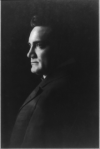 years; perhaps not then. We had been so accustomed to the spurious, manufactured voices of people like de Reszke and Tamagno and Maurel, that when the genuine article was placed before us we hardly recognized it. Here was something lovelier than anything that had yet been heard; yet we must needs stop to carp because it was not quite proper. All traditions were smashed, all laws violated, all rules ignored. Jean de Reszke would strain and strain, until his audience suffered with him, in order to produce an effect which this new singer of the South achieved with his hands in his pockets, as he strolled round the stage.
years; perhaps not then. We had been so accustomed to the spurious, manufactured voices of people like de Reszke and Tamagno and Maurel, that when the genuine article was placed before us we hardly recognized it. Here was something lovelier than anything that had yet been heard; yet we must needs stop to carp because it was not quite proper. All traditions were smashed, all laws violated, all rules ignored. Jean de Reszke would strain and strain, until his audience suffered with him, in order to produce an effect which this new singer of the South achieved with his hands in his pockets, as he strolled round the stage.
The Opera in London is really more of a pageant than a musical function. The front of the house frequently claims more attention than the stage. On Caruso and Melba nights it blazes. Tiers and tiers of boxes race round in a semicircle. If you are early, you see them as black gaping mouths. But very soon they are filled. The stalls begin to leap with light, for everybody who is not anybody, but would like to be somebody,drags out everything she possesses in the way of personal adornment,and sticks it on her person, so that all the world may wonder. At each box is a bunch of lights, and, with the arrival of the silks and jewellery, they are whipped to a thousand scintillations.
The blaze of dancing light becomes painful; the house, especially upstairs, is spitefully hot. Then the orchestra begin to tumble in;their gracefully gleaming lights are adjusted, and the monotonous A surges over the house–the fiddles whine it, the golden horns softly blare it, and the wood-wind plays with it.
But now there is a stir, a sudden outburst of clapping. Campanini is up. Slowly the lights dissolve into themselves. There is a subdued rustle as we settle ourselves. A few peremptory _Sh-sh-sh!_ from the ardent galleryites.
Campanini taps. His baton rises … and suddenly the band mumbles those few swift bars that send the curtain rushing up on the garret scene. Only a few bars … yet so marvellous is Puccini’s feeling for atmosphere that with them he has given us all the bleak squalor of his story. You feel a chill at your heart as you hear them, and before the curtain rises you know that it must rise on something miserable and outcast. The stage is in semi-darkness. The garret is low-pitched, with a sloping roof ending abruptly in a window looking over Paris. There is a stove, a table, two chairs, and a bed. Nothing more. Two people are on. One stands at the window, looking, with a light air of challenge, at Paris. Down stage, almost on the footlights, is an easel, at which an artist sits. The artist is Scotti, the baritone, as Marcello. The orchestra shudders with a few chords. The man at the window turns. He is a dumpy little man in black wearing a golden wig. What a figure it is! What a make-up! What a tousled-haired, down-at-heel, out-at-elbows Clerkenwell exile! The yellow wig, the white-out moustache, the broken collar…. But a few more brusque bars are tossed from Campanini’s baton, and the funny little man throws off, cursorily, over his shoulder, a short passage explaining how cold he is. The house thrills. That short passage, throbbing with tears and laughter, has rushed, like a stream of molten gold, to the utmost reaches of the auditorium, and not an ear that has not jumped for joy of it. For he is Rudolfo, the poet; in private life, Enrico Caruso, Knight of the Order of San Giovanni, Member of the Victorian Order, Cavalier of the Order of Santa Maria, and many other things.
As the opera proceeds, so does the marvel grow. You think he can have nothing more to give than he has just given; the next moment he deceives you. Towards the end of the first Act, Melba enters. You hear her voice,fragile and firm as fluted china, before she enters. Then comes the wonderful love-duet–“Che gelida manina” for Caruso and “Mi chiamano Mimi” for Melba. Gold swathed in velvet is his voice. Like all true geniuses, he is prodigal of his powers; he flings his lyrical fury over the house. He gives all, yet somehow conveys that 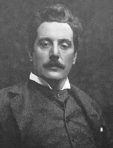 thrilling suggestion of great things in reserve. Again and again he recaptures his first fine careless rapture. His voice dances forth like a little girl on a sunlit road, wayward, captivating, never fatigued, leaping where others stumble, tripping many miles, with fresh laughter and bright quick blood. There never were such warmth and profusion and display. Not only is it a voice of incomparable magnificence: it has that intangible quality that smites you with its own mood: just the something that marks the difference between an artist and a genius. There are those who sniff at him. “No artist,” they say; “look what he sings.” They would like him better if he were not popular; if he concerned himself, not with Puccini and Leoncavallo, but with those pretentiously subtle triflers, Debussy and his followers. Some people can never accept beauty unless it be remote. But true beauty is never remote. The art which demands transcendentalism for its appreciation stamps itself at once as inferior. True art, like love, asks nothing, and gives everything. The simplest people can understand and enjoy Puccini and Caruso and Melba,because the simplest people are artists. And clearly, if beauty cannot speak to us in our own language, and still retain its dignity, it is not beauty at all.
thrilling suggestion of great things in reserve. Again and again he recaptures his first fine careless rapture. His voice dances forth like a little girl on a sunlit road, wayward, captivating, never fatigued, leaping where others stumble, tripping many miles, with fresh laughter and bright quick blood. There never were such warmth and profusion and display. Not only is it a voice of incomparable magnificence: it has that intangible quality that smites you with its own mood: just the something that marks the difference between an artist and a genius. There are those who sniff at him. “No artist,” they say; “look what he sings.” They would like him better if he were not popular; if he concerned himself, not with Puccini and Leoncavallo, but with those pretentiously subtle triflers, Debussy and his followers. Some people can never accept beauty unless it be remote. But true beauty is never remote. The art which demands transcendentalism for its appreciation stamps itself at once as inferior. True art, like love, asks nothing, and gives everything. The simplest people can understand and enjoy Puccini and Caruso and Melba,because the simplest people are artists. And clearly, if beauty cannot speak to us in our own language, and still retain its dignity, it is not beauty at all.
Caruso speaks to us of the little things we know, but he speaks with a lyric ecstasy. Ecstasy is a horrible word; it sounds like something to do with algebra; but it is the one word for this voice. The passion of him has at times almost frightened me. I remember hearing him at the first performance of “Madame Butterfly,” and he hurt us. He worked up the love-duet with Butterfly at the close of the first act in such fashion that our hands were wrung, we were perspiring, and I at least was near to fainting. Such fury, such volume of liquid sound could not go on, we felt. But it did. He carried a terrific crescendo passage as lightly as a school-girl singing a lullaby, and ended on a tremendous note which he sustained for sixty seconds. As the curtain fell we dropped back in our seats, limp, dishevelled, and pale. It was we who were exhausted. Caruso trotted on, bright, alert, smiling, and not the slightest trace of fatigue did he show.
It seems to have been a superb stroke of fortune for us that Caruso should have come along contemporaneously with Puccini. Puccini has never definitely written an opera for his friend; yet, to hear him sing them,you might think that every one had been specially made for him alone. Their temperaments are marvellously matched. Each is Italian and Southern to the bone. Whatever Caruso may be singing, whether it be Mozart or Gounod or Massenet or Weber, he is really singing Italy. Whatever setting Puccini may take for his operas, be it Japan, or Paris,or the American West, his music is never anything but Italian.
And I would not have it otherwise. It may offend some artistic consciences that Butterfly, the Japanese courtesan, should sob out her lament in music which is purely Italian in character and colour; but what a piece of melody it is!
Puccini’s is a still small voice; very pleading, very conscious of itself and of the pathos of our little span of living; but the wistfulness of its appeal is almost heartbreaking. He can never, I suppose, stand among the great composers; dwarfed he must always be against Mozart or Weber, or even Verdi. But he has done what all wise men must do: he has discovered the one thing he can perform well, and he is performing it very well indeed. His genius is slim and miniature, but he handles it as an artist. There is no man living who can achieve such effects with so slender material. There is no man living who can so give you, in a few bars, the soul of the little street-girl; no man living who can so give you flavour of a mood, or make you smell so sharply the atmosphere of a public street, a garret, a ballroom, or a prairie. And he always succeeds because he is always sincere. A bigger man might put his tongue in his cheek and sit down to produce something like “La Bohème,” and fail miserably, simply because he didn’t mean it.
When Puccini has something to say, though it may be nothing profound or illuminating, he says it; and he can say the trite thing more freshly,with more delicacy, and in more haunting tones, than any other musician.His vocabulary is as marvellous as his facility in orchestration and in the development of a theme. He gets himself into tangles from which there seems no possible escape, only to extricate himself with the airiest of touches. Never does his fertility of melodic invention fail him. He is as prodigal in this respect as Caruso in his moments. Where others achieve a beautiful phrase, and rest on it, Puccini never idles; he has others and others, and he crowds them upon you until the ear is surfeited with sweetness, and you can but sit and marvel.
There it is. Sniff at it as you will, it is a great art that captures you against your reason, and when Puccini and Caruso join forces, they can shake the soul out of the most rabid of musical purists. What they do to commonplace people like myself is untellable. I have tried to hint at it in these few remarks, but really I have told you nothing …nothing.
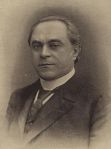
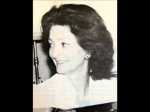
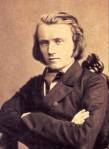


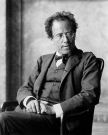

 Kaija Saariaho’s speech at the McGill University
Kaija Saariaho’s speech at the McGill University
